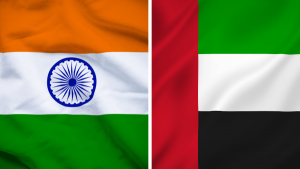UAE-Italy Commercial Relations: Investment Trends and Sector Opportunities
The UAE–Italy relations are maturing into a structured, investment-led corridor, supported by strong institutional mechanisms that convert policy alignment into bankable projects. Near-term opportunities are most tangible in energy transition, digital infrastructure, and advanced manufacturing.
Dubai’s VARA Licensing Framework for Virtual Asset Businesses: A Practical Roadmap
Dubai’s VARA licensing regime follows a clear two-stage process, Approval to Incorporate and Full VASP License, balancing innovation with robust compliance and operational substance. While demanding, it offers regulatory clarity, global credibility, and a stable base for virtual asset firms operating from the UAE.
UAE President’s January 19 India Visit Yields Strategic Defense, Trade, and Investment Push
UAE President Sheikh Mohamed bin Zayed Al Nahyan’s brief official visit to India reinforced deepening strategic ties, with leaders agreeing to double bilateral trade to US$200 billion by 2032 and advancing cooperation in defense, energy, technology, and infrastructure.
Türkiye and UK Sign Trade Plan Ahead of FTA Upgrade
Türkiye and the United Kingdom have signed a 16-point JETCO action plan to accelerate negotiations on upgrading their 2021 Free Trade Agreement (FTA), with the aim of lifting bilateral trade toward US$40 billion and deepening cooperation in trade and investment.
Oman’s Launches its Eleventh Five-Year Development Plan (2026-2030) Prioritizes Manufacturing and Tourism
Oman’s Eleventh Five-Year Development Plan (2026–2030) prioritizes manufacturing and tourism as key engines of economic diversification.
Middle East Tech 2026: 5 Non-AI Trends Shaping Regional Business
In 2026, Middle East investment in tech is amplifying beyond AI to sectors such as biotechnology, quantum computing and nuclear energy.
How UAE’s Free Zones Are Powering Economic Diversification in the Gulf
UAE’s free zones have evolved into strategic engines of economic diversification, combining regulatory efficiency, sector-specific ecosystems.
UAE Raises Minimum Wage for Emiratis in the Private Sector to AED 6,000 from January 2026
MoHRE has called on companies to review and amend employment contracts of Emirati employees to ensure full compliance ahead of the implementation deadline – June 30.
GCC Economies Outlook for 2026: Growth Projections and Key Drivers
GCC economies are expected to see stronger growth in 2026, with international institutions projecting expansion of around 4.4–4.5 percent.
Why UAE Is Becoming a Strategic Hub for Canada Investment Funds
Canada–UAE investment ties are deepening, driven by new trade negotiations, bilateral capital flows, and the UAE’s role as a strategic hub.















